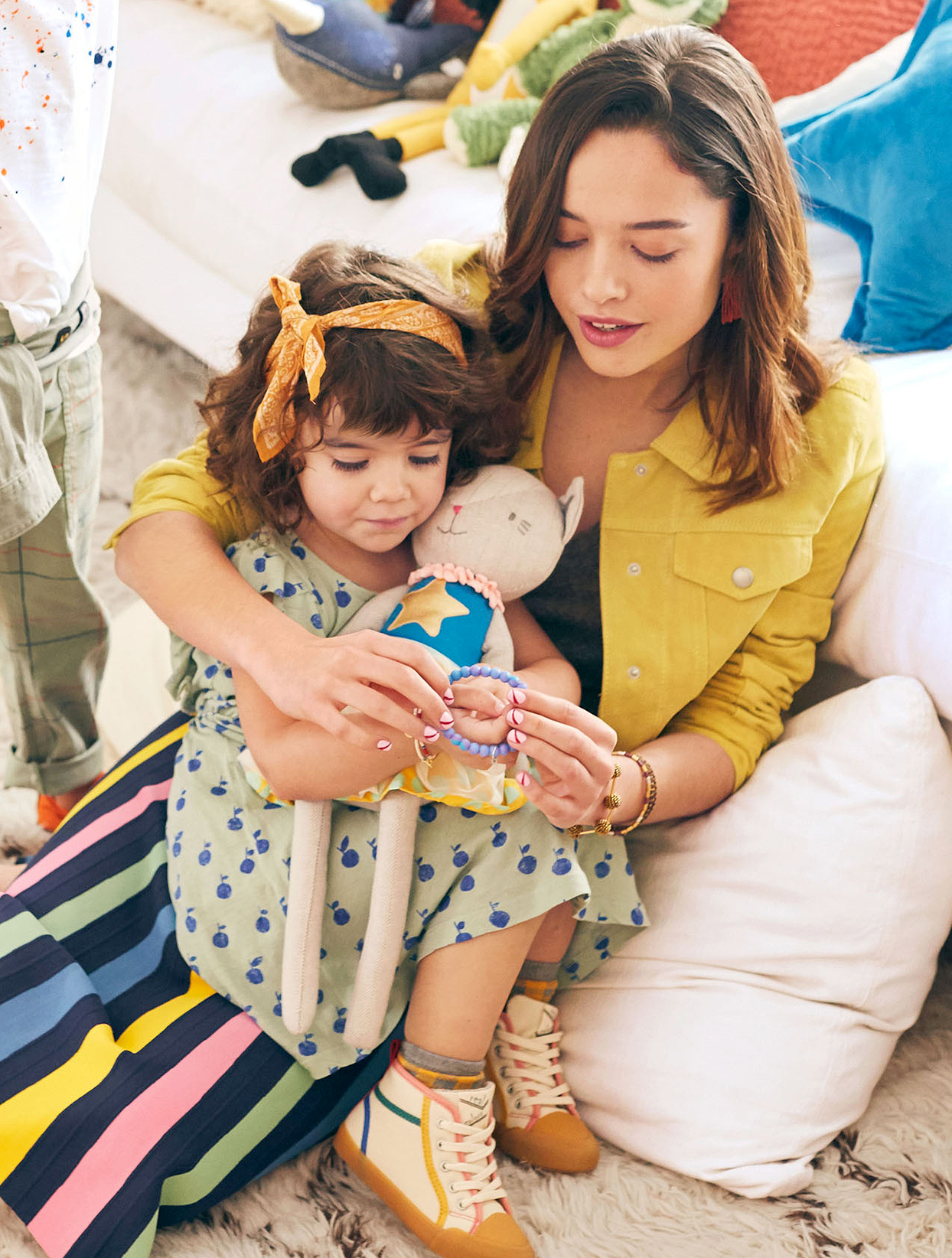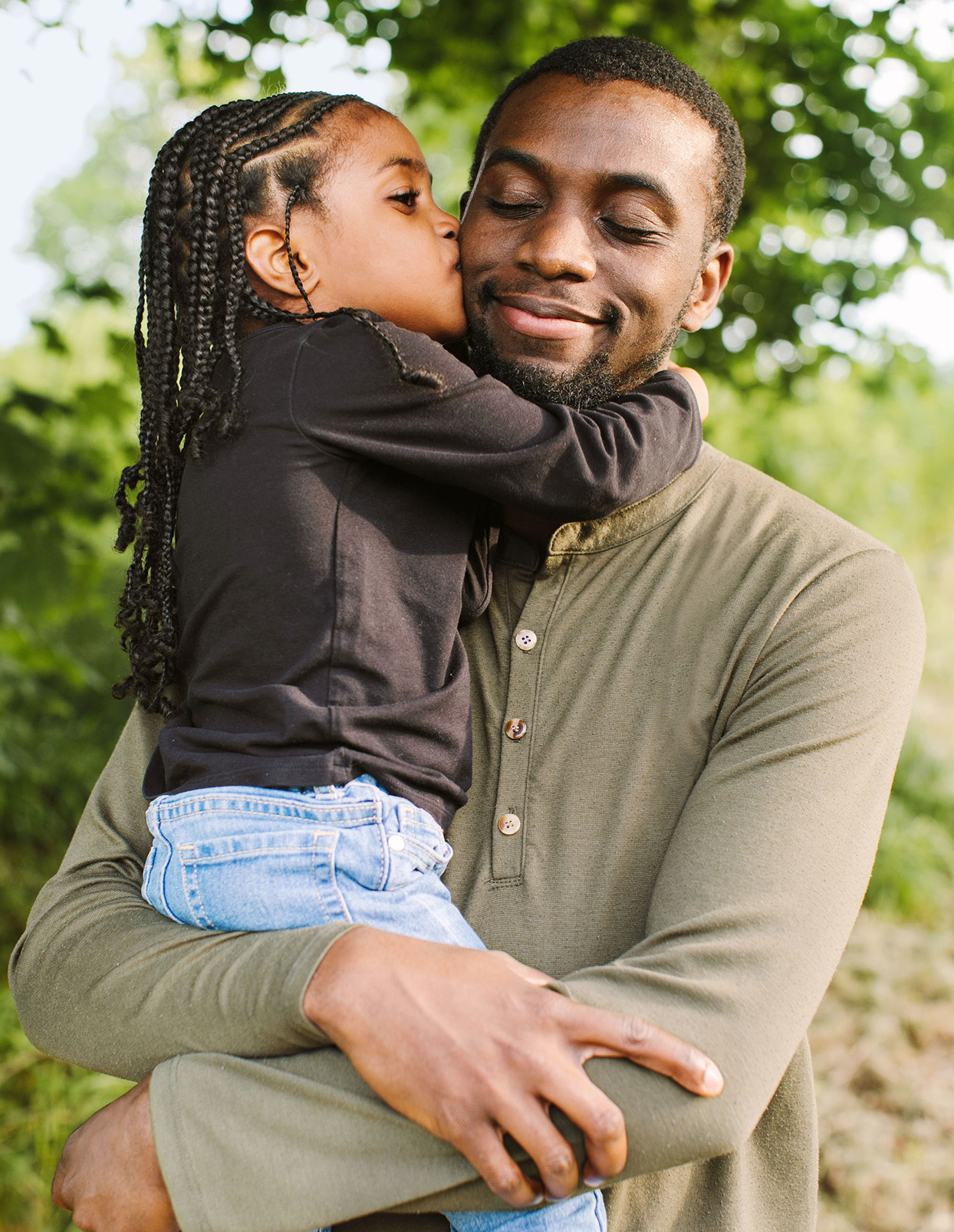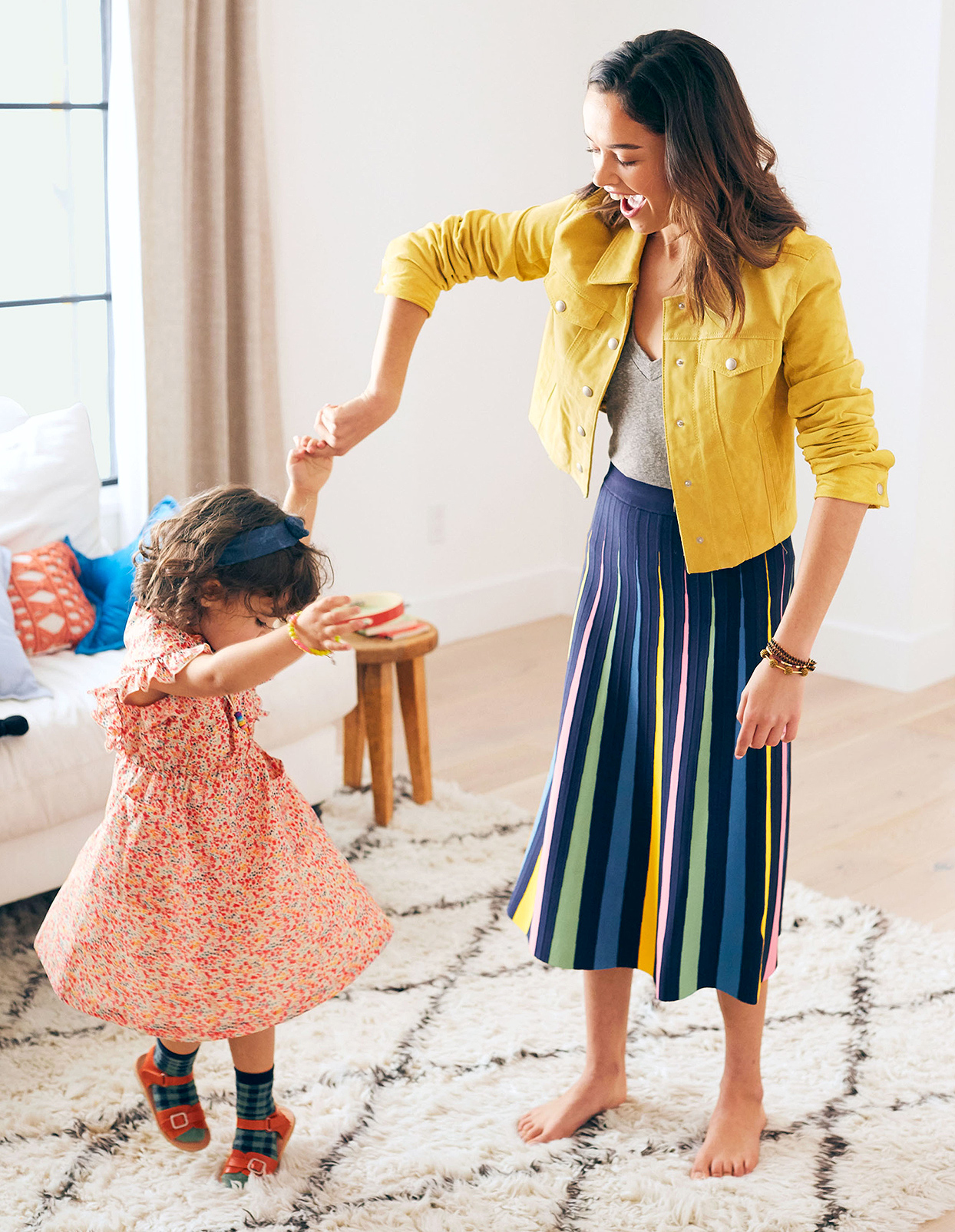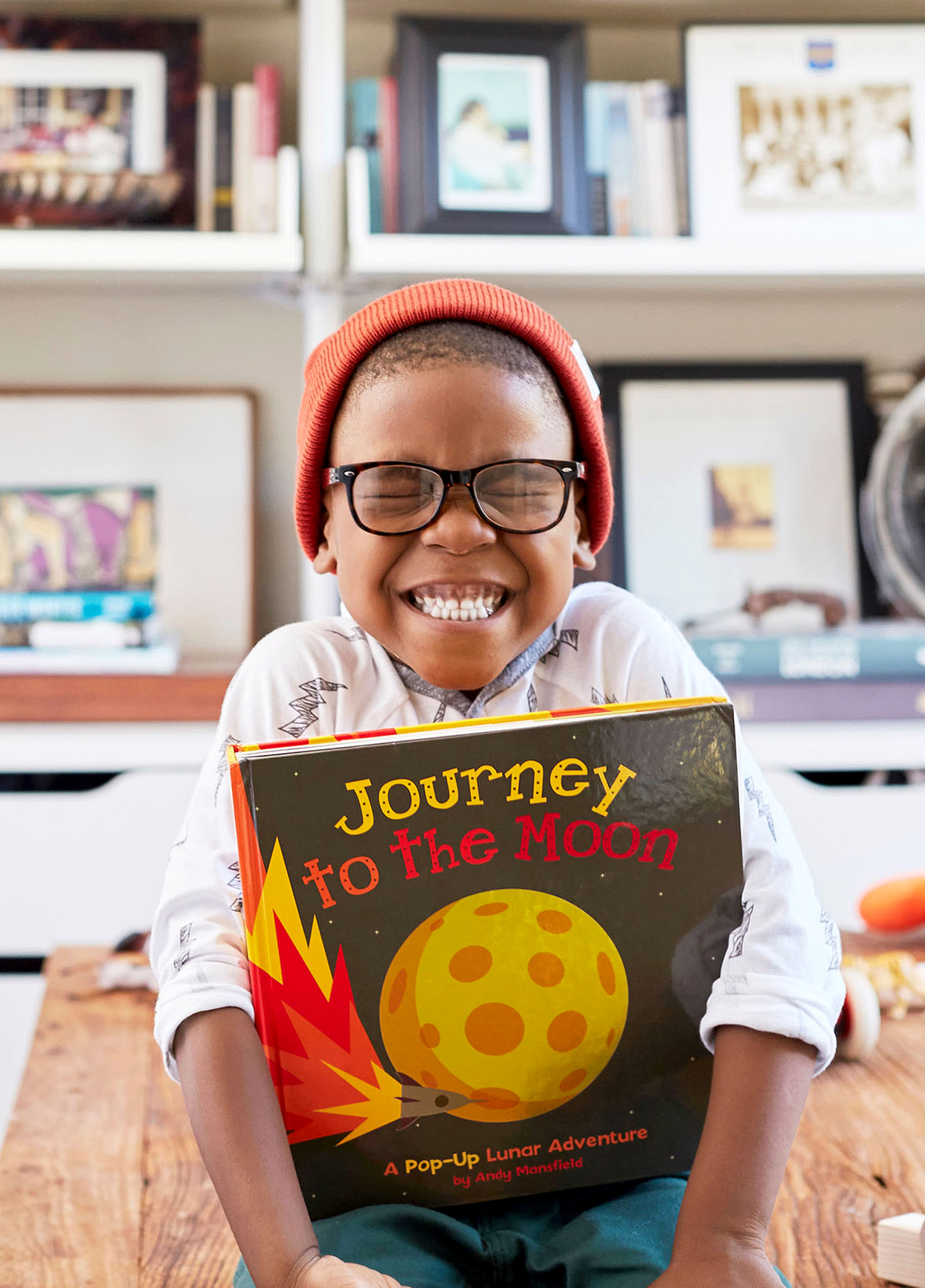
Not long ago, my friend Marni was playing tag at a local park with her 7-year-old son and 4-year-old daughter. They finished the game with shouts of laughter and a three-way hug—and as they started to leave, an older mom who’d been watching the family caught Marni’s eye. “Enjoy it now,” she said with a wry smile. “Pretty soon they’ll be teenagers and they won’t even talk to you.”
What is it about teenagers that gets us so panicked? Will our darling cherubs really become sneering beasts once their age hits two digits? This stereotype does a disservice to everyone, says Kenneth Ginsburg, M.D., a pediatrician and the codirector of the Center for Parent and Teen Communication at Children’s Hospital of Philadelphia Research Institute. “If kids keep hearing that they’re going to turn into monsters when they hit adolescence, they’ll think they have to misbehave in order to be normal,” he says. “We need to change our view and think about adolescence in a more positive, helpful way.”
Fortunately, the relationship you have when your kids are small sets the stage for their behavior later. You can think about parenting a little the way you would an investment portfolio, says Stephanie Carlson, Ph.D., a professor in the Institute of Child Development at the University of Minnesota in Minneapolis. “When you spend time with your 2-year-old, you’re building and cultivating the developmental assets that will give the best ten-year return at age 12—or even longer-term, at age 22.” Enjoy your little kid now, and use these strategies to help assure a great payout ahead.
1. Create a hierarchy of rules.
Young children generally assume that if Mom or Dad says it, you’re supposed to do it (even if you don’t want to). But teenagers are building independence, and their job is to question and often reject their parents’ positions. There’s nothing wrong with that, but there are still some things that are must-dos (or must-never-dos), and it helps your teen stay in line if you establish that some rules just aren’t up for debate.
When your kids are young, explain that matters of health and safety are nonnegotiable. Your toddler has to travel in a car seat, wash their hands, and get vaccinations. But other topics should be open to discussion. If your child wants to wear shorts to your parents’ anniversary party, talk about it. Instead of making an absolute demand, explain your position (“Wearing nice clothes will make Grandpa happy”) and let them explain theirs (“I like my shorts!”). This shows kids that their opinions matter.
When they become teens, this system becomes even more important. Your 16-year-old new driver might not love your rule about only one passenger riding in the car but knows that when it comes to safety, there’s no discussion. They also know that on other matters, you’ll be open to talking out both sides. Your kid wants pink hair and you’re not thrilled by the idea? You’ll be able to comfortably raise your concern. They’ve learned that in convos with you, their voice counts, and that’s something every teen wants.

2. Trust that they hear you.
The idea of peer pressure is so prevalent that it’s easy to assume our kids will become mindless followers the second they reach middle school, our parental words of wisdom losing out to the lure of the crowd. But Dr. Ginsburg says that’s simply not the case. “What teens want more than anything is at least one adult who believes in them unconditionally but holds them to high standards,” he says. “They listen to us and care about what we think and say.”
You can start being the kind of adult your future teenager needs right now. The unconditional love you feel for your baby or toddler never has to change. When they do something wrong as they get older, let them know that you’re there to help them do better. I was having lunch with a 4-year-old recently, and when he spilled his cup of water, he looked at me and said, “That’s okay. We can clean it up.” I laughed, realizing that he must have been repeating what his parents say to him. The message is, kids internalize what you tell them. Never underestimate the huge role you play in their psyches and how you can use that for good.
Young kids are often delighted as they start making friends and discovering worlds beyond their parents, but that doesn’t mean you’ve been replaced. So let your standards be known. If one of your child’s classmates says, “We don’t play with girls,” tell your child you think it’s much better to have everyone play together. When kids hit their teen years, they begin to evaluate whose opinions mean the most to them, ranking them in priority the same way adults do. If you’ve shown your kid that you believe in them and expect them to rise to challenges, you can bet your voice will be high on that list of trusted sources.

3. Help them cope with anxiety.
How we interact with toddlers now can actually give them tools to grapple with stress years into the future. In one long-term study, Kristin A. Buss, Ph.D., head of the psychology department at Penn State, showed 2-year-olds novel situations like a puppet show or a remote-control spider. Those who got scared during the puppet show turned out to be most at risk for anxiety as teenagers. If your child tends to be among the criers at the puppet show, your natural reaction may be to take them away from scary situations. But being too protective, Dr. Buss says, can set up “a trajectory of more anxiety, not less,” because your child gets the message that they can’t cope on their own. Instead, help calm them, gently take their hand, and guide them back to the stressor, saying, “You can do this.”
Similarly, if your second- or third-grader is nervous about going to a birthday party, Dr. Buss advises against keeping them home. Gently encourage your child to approach challenging situations so they gain confidence rather than letting the sources of anxiety become outsize in their mind. Those early interventions can give kids extra courage as they face what Dr. Buss calls “the anxiety peak of adolescence.” Let’s face it, seventh grade may never be the best year of a child’s life, but if children have been learning how to handle anxiety since they were small, they have a better chance of making a smooth transition to adolescence.
4. Encourage a positive perspective.
Teenagers can seem overly dramatic, with every slight or snub treated like the end of the world. But kids who have had a lot of practice getting perspective are better at shrugging off small aggravations. Susan McCartan, mom of two daughters in Scottsdale, Arizona, played a game of “High-low” when her girls were young, encouraging each of them to describe the best and worst part of their day. Now that they are 16 and 18, McCartan thinks the early exercise has helped them feel more comfortable talking about disappointments, but also recognizing the positives.
Toddlers respond well if you listen carefully when they complain, acknowledge the problem, and then help them see a solution. Your 5-year-old wants to draw an ocean and you only have an orange marker? You can sympathize with their frustration but then point out the good news—they can draw the fish that swim in the ocean! If children get in the habit early of seeing many sides to a problem, they have a better chance of handling the traumas of their teen years with a little perspective.
“People always express sympathy when I tell them I have two teenage daughters,” McCartan says, “but I tell them, ‘Really, it’s fantastic!’ ” She modeled her values early on, and her children continue to join her in volunteer activities—like cooking meals for the homeless and playing with puppies at a local shelter. Now that they’re teens, giving back to others is something they can all share and has served as a way for the family to bond. Toddlers love doing things for others, so making altruism a part of your family life now means that as teenagers, they will be more likely to step outside themselves, take a longer view, and possess a sense of purpose about how they fit into the world.

5. Be patient.
Toddlers build new neural connections at an amazing rate, but Dr. Carlson points out that the time it takes for a signal to pass across one of those neurons is dramatically slower in children than in adults. If you want to give your kids a sense of autonomy, something that will be crucial in the teen years, you need to let them go at their own pace, even if it seems wildly slow to you. “Realize that it takes toddlers a long time to process information, and try not to rush them all the time,” she advises. Yes, you’re in a hurry to get in the car, but it’s really important to your toddler that they put on their shoes. Let them, even if it takes triple the amount of time.
The prefrontal cortex, which controls impulsive activity, isn’t fully developed by the teen years. But, Dr. Carlson says, “you still want an adolescent to be able to pause between stimulus and response.” A 16-year-old may be excited to jump into a friend’s car after a party, but it’s much better if they can take a minute to recall whether the driver has been drinking or is known for driving too fast. Children can learn in toddlerhood to take a breath before they act. When your 3-year-old rushes to pat a dog in the park, remind them that they should ask the owner first if the dog is friendly. Kids soon realize that taking the time to get information and consider consequences gives them more control over a situation, and ultimately more autonomy.
6. Tell stories.
Patterns of communication within a family get set early. If you want your children to talk to you when they’re teens, make sure you spend a lot of time talking to them as toddlers. Sue Pepin has five daughters; the youngest two are teenagers. Living in San Francisco when the three oldest were in day care or starting elementary school, she often had a 20- or 30-minute commute in traffic, and she always spent it talking and sharing stories. At bedtime, she and her husband would spin a tale about an imaginary little girl named Spizzo who was brave and confident. The story was often a subtle recap of their children’s day, recounting what Spizzo did when she was disappointed or faced a bully or even worried about climate change.
Pepin always noticed when a child repeated back one of the subliminal messages—such as that it’s okay to fail as long as you keep trying. As the girls became teens, she realized that “your children are listening and taking in what you say, even when you think they’re not.” Whether you have a toddler or a teenager, you’re unlikely to get a straight answer to the question “How was your day?” But once you find new ways to weave stories and share ideas, you’ll be able to connect with your child at any age.
This article originally appeared in Parents magazine’s December 2020 issue as “Toddler Strategies With Teenager Payoffs.” Want more from the magazine? Sign up for a monthly print subscription here
Parents magazine

